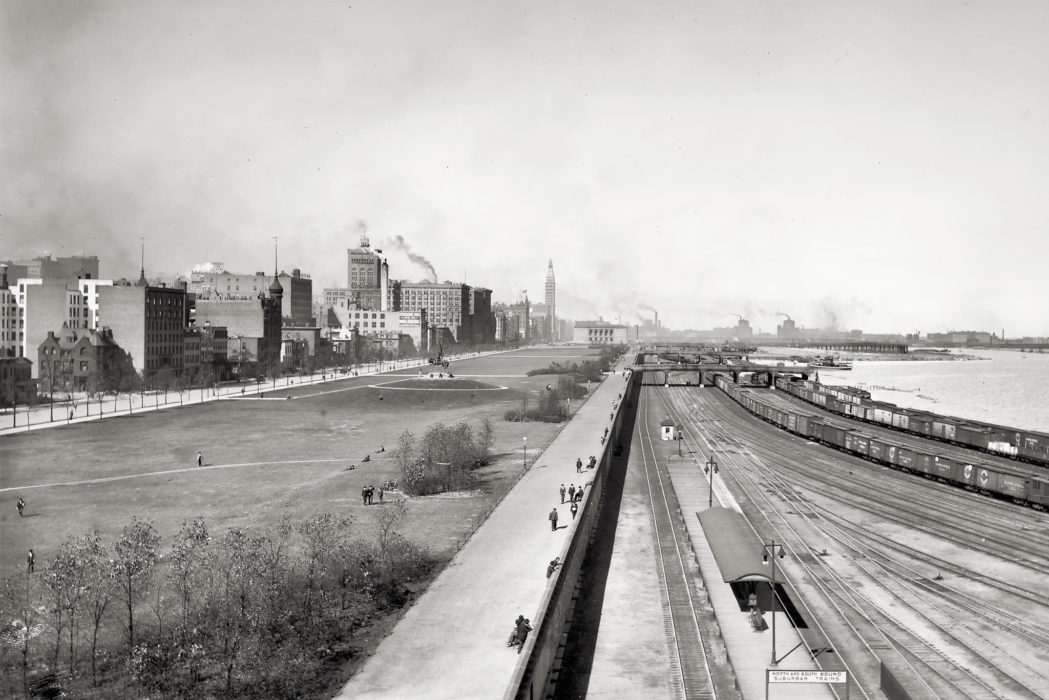A COLD DANK TRAIN PLATFORM is a rather inhospitable greeting place for an elderly gentleman who has traveled halfway across the world to share a message of peace and universal brotherhood. The platform is quiet, except for the shuffling of shoes. But then the rumbling suddenly builds and a torrent of sound sweeps over all those who wait.
The waiting room at Chicago’s Grand Central Station would be more comfortable, with its roaring fireplace and soaring columns, but no one seems to care. They want to see the train arrive. The mood is buoyant, not only among the fervent believers, but also among reporters assigned to sort out who this man is and what he hopes to achieve.
‘Abdu’l-Bahá left the nation’s capital yesterday afternoon on the Baltimore and Ohio Railroad, the main artery linking Chicago to Washington. The train reaches across the Potomac River before chopping through the lush countryside of Virginia and Pennsylvania. After a short wait in Pittsburgh, it stops in Youngstown; Akron, Ohio; and Nappanee, Indiana, before pulling in along the southwestern shore of Lake Michigan.
The railroad built Chicago. It came here in 1848, the same year the canal opened to connect the Great Lakes to the Mississippi River. The rods of iron bequeathed to the city a commanding position in the nation’s economy, and Chicago quickly became the largest rail hub in the world. It also got dirty. Really dirty. Chicago’s filth is famous among residents and visitors alike. Before entering the city’s center, rail passengers traverse an expanse of smoldering factories, slaughterhouses, and endless mountains of coal.

Yet something progressive sits at Chicago’s heart. Abraham Lincoln was nominated here and went on to win the Presidency. The Great Fire of 1871 left 300,000 people homeless. But the city rebuilt at a spectacular rate, raising the world’s first skyscraper, the Home Insurance Building, on the northeast corner of LaSalle and Adams Streets. Half a mile to the southwest, Jane Addams founded Hull House, a pioneering model for the emerging field of social work. At the turn of the century, as reformers began to change America politically and socially, Chicago took the lead.
The clock at Grand Central Station reaches the noon hour. ‘Abdu’l-Bahá, who was expected at a quarter to ten this morning, still hasn’t arrived. The watchers remain on the platform, easing forward in anticipation each time a train thunders in, only to step back and resume their peering right and left along the endless lines of tracks that crisscross Chicago.
Like clockwork, their routine goes on all day.
Then evening creeps in. The sun has set and ‘Abdu’l-Bahá is nowhere to be found. A few remain on the platform, but the reporters have all gone home, or perhaps back to the office to face their editors without having gotten the story. One of them would find a clever solution to the conundrum by filing an article under the simple headline: “BAHAIST CHIEF MISSING!”






